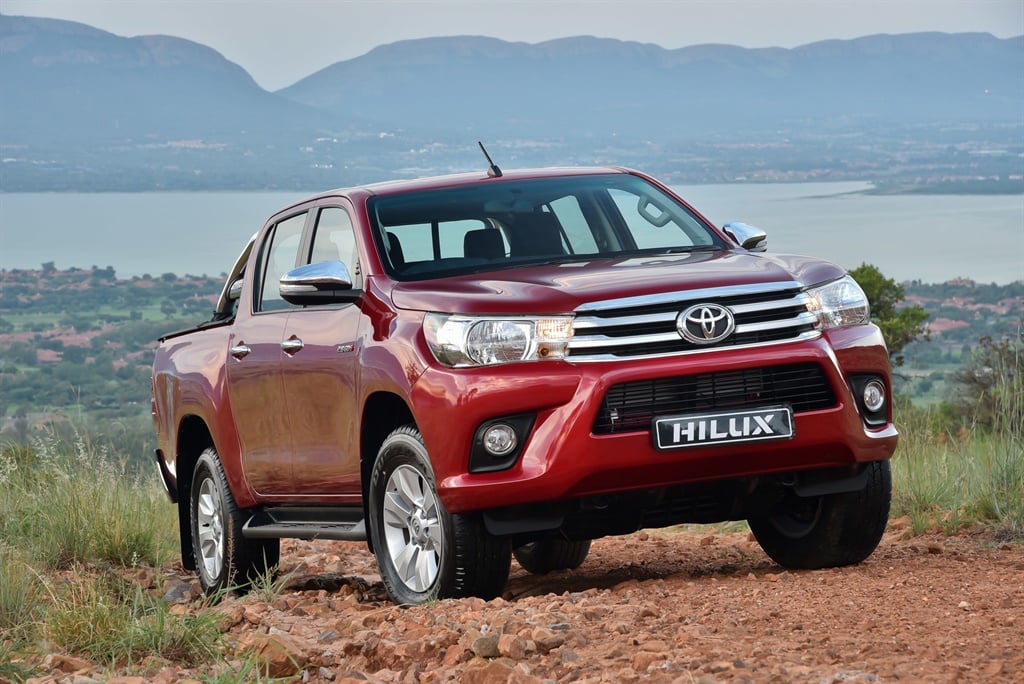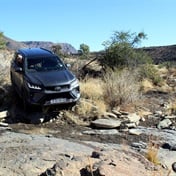'Bakkies are SA’s most popular vehicles but why can’t you claim VAT on all of them?' asks Lance Branquinho.
Your favourite cappuccino or quinoa wrap will become a touch more expensive on April 1 but what about that car upgrade you've been arranging finance for?
Government's decision to increase the South African VAT rate from 14% to 15% will surge all retail vehicle pricing, with the influence being marginal on a R200 000 purchase (about R2 000 – R2 500), but more significant if you start compounding the ad valorem tax effect on vehicles at R1m (R40 000 – R50 000).
Most of the price escalations due to VAT will be of a psychological effect, ballooning price points that were just under a specific round number, to a few hundred or thousand rand above it.
Toyota's hugely popular Hilux 2.8 GD-6 4x4 Raider auto is currently priced at R595 700 and is likely to become a R600 000 vehicle after the VAT increase, although the marginal rise remains 1%, consumer psychologically now registers it as a R600k bakkie.
With bakkies being the best-selling class of vehicle in South African the VAT increase could work against itself, as businesses can reclaim VAT on bakkie input costs, provided those bakkies are specifically tailored for work and the passenger capacity does not exceed 50% of the vehicle's working length.
What do you think of the increase in VAT? Email us
For decades, double-cab bakkie owners have attempted to gain a similar VAT refund benefit from SARS but mostly been unsuccessful. With the increase in VAT, demand for double-cab taxation reform could become an issue worth campaigning for.
What is a working double-cab?
As with all taxation benefits, there are caveats with the bakkie VAT claim protocol. VW’s double-cab Transporter features two rows of bench seating allowing a 3+3 passenger configuration and a massive, although shallow, load bin with drop-sides.
Kriben Reddy, TransUnion head of auto information solutions, said: "The upcoming VAT increase will have an immediate impact on new vehicle pricing effective April 1. However some OEM’s have opted to absorb the VAT increase into the overall price of the vehicle and not increase their pricing.
"Used vehicle pricing has always been inclusive of VAT and any effect of the increase will only be seen over time.
"New vehicle pricing was below CPI in Q4 2017 which stimulated slight levels of growth within new vehicle sales. The upcoming VAT increase might have a slight impact on demand and sales of new vehicles."
It's the one double-cab bakkie you currently have the best chance on reclaiming your input VAT as it carries more than four passengers and the drop-side load bin has a large surface capacity profile, despite not having a deep loading volume.
SARS will start feeling pressure from certain interest groups with bakkie VAT, as there are uniquely South African applications where a double-cab bakkie is the only configuration suitable to business.
Mining and construction contractors are not allowed to transport personnel on the back of a bakkie and require passengers to have a certain level of airbag coverage and roll-over protection. For these engineering subcontractors a double-cab is the only viable solution and certainly not a leisure or family vehicle purchase.
The South African game-viewing industry is much the same. Double-cab bakkies are the only way to move staff safety onto and off a game lodge before and after shifts, or to collect guests from isolated airfields.
Although custom 7-seater game-viewing vehicles, mostly converted Land Rover Defenders and Land-Cruiser 70s, are VAT claimable, any support double-cabs do a great deal more mileage and work at a hunting- and viewing lodge and remain VAT unclaimable, which is deeply nonsensical.
If SARS is seeking an example of a market where bakkies are the most popular class of vehicle, benefitting from tax benefits without imperilling the state's finances, Thailand is an excellent illustration.
Although its GPD is double that of SA, income profiles are similar and there's a robust vehicle manufacturing industry too with Ford, Mitsubishi and Toyota all manufacturing bakkies in Thailand.
Local demand for double-cabs are tremendous, as the Thai government has incentivised bakkie purchases by grading them at a much lower tax rate to passenger cars for decades.
Thai single-cab bakkie owners often only pay perhaps 1% taxation and double-cabs are more but also a lot less than any passenger car.
In mitigation, Thai tax authorities have altered their policy of late, enacting a vehicle taxation regime which is closer to that of European and American markets: Levying emissions.
Why else do you think Ford, Toyota, Mitsubishi, Nissan and Isuzu are all producing smaller and smaller double-cab bakkie engines?
If SA is desperate to imitate Thailand's exceptionally healthy 4% GDP growth, allowing more small business owners VAT tax relief on their double-cabs could be one way of achieving that.




 Publications
Publications
 Partners
Partners
















